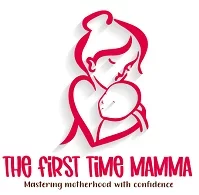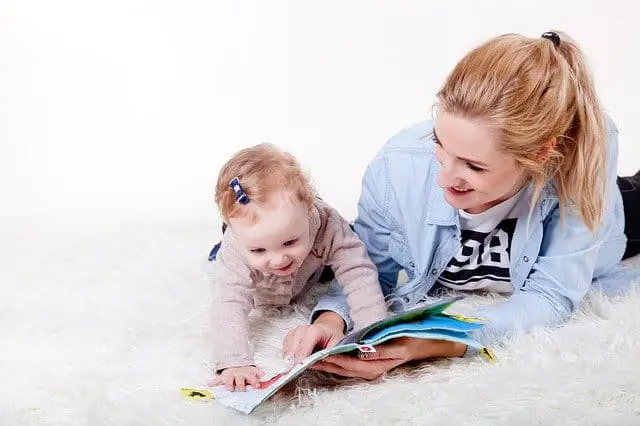It is the joy of every mother to hear their baby talk early. It is indescribable to hear your baby talk and call you Mama or Dada. In this article, we will look at different aspects of a baby’s talk and how to teach your baby to talk early.
Hey! By the way… any links on this page that lead to products on Amazon are affiliate links and I earn a commission if you make a purchase. Thanks in advance – I really appreciate it! .
How do babies learn to talk?
Babies learn how to talk from the womb. It starts at about 6 months before they are born. At such time, the bones in their ears are developed and the connections to the brain are grown. They can hear the rhythm and melody of their mother’s voice. This helps to develop their brain and put it in tune with the language they will learn to speak when they are born. When they are born, they already know how to communicate what they feel. They do this by cooing, gurgling, and crying.
When do babies start talking clearly?
Baby talk timelines
Babies from 0 to 6 months old
Babies from 0 – 6 months old can hear what you say from the first day they are born. They start by identifying sounds with their sources. They communicate with their cries to tell you what they need. They make sounds like aa and ee. The baby tries to imitate the sounds you make with coos and gurgles. The baby learns how people talk to each other.
Babies from 6 to 9 months old
At 6 to 9 months old, babies play with sounds such as “baba” or “dada”. They smile when they see and hear people smiling or talking with a happy voice. They cry when they hear people talk in an angry voice.
Babies from 9- 12 months old
Babies at this age understand simple words like “No”. The baby can point to things around and use sign language to tell you what they want.
Babies from 12 to 15 months old
At 12 to 15 months old, babies use sounds to identify objects. At this stage, they can understand 25 words or more. The baby can respond to you when you ask questions. For example, if you ask for a toy, the baby can point to it or bring it for you.
Babies from 15 to 18 months old
The baby will use gestures to talk with you. When you go with them for shopping, they may point at what they want.
Babies from 18 months to 2 years old
The baby can put words together and also follow instructions. At this stage, they can combine action and subject to create words like “I want food”, “I want water”, etc.
Babies from 2 to 3 years
The baby’s language skills continue to grow greatly. They can put words together to make three-word simple sentences such as “bye-bye mummy”. They begin to answer simple questions, such as “where are your toys? They know the differences between big and small.
What are the common first words of babies?
Every mom waits to hear the first words from their babies. Common first words from babies are “Mama” and “Dada”. When your baby gets to about 15 months of age, they will use simple consonants to forms words like “more” and “baby”. By the time the baby gets to 18 months, their vocabulary increases, and they pick up new words here and there.
How to tell if your child is a late talker
Babies are different, even the ones from the same mom. For example, a 3-year-old might be very vocal, while another toddler of the same age is still using three-word sentences. By age 2, strangers around should be able to understand half of what the baby is saying. By age 3 and 4, the baby should be talking clearly. So, who is a late talker?
A late talker is a baby between 18 – 30 months old who understands languages but cannot talk clearly for his or her age. Below is how to tell if your child is a late talker:
- The baby does not copy or imitate words
- The baby uses little or no gestures while communicating
- The baby has a family history of communication delay
- The baby finds it difficult to talk to their peers
- The baby has ear infections
- The baby is quiet as an infant with little babbling.
If there is a delay in your child’s communication, see your pediatrician.
Now below is how to teach babies to talk early.
How to teach baby to talk early
1. Use an infant-directed speech
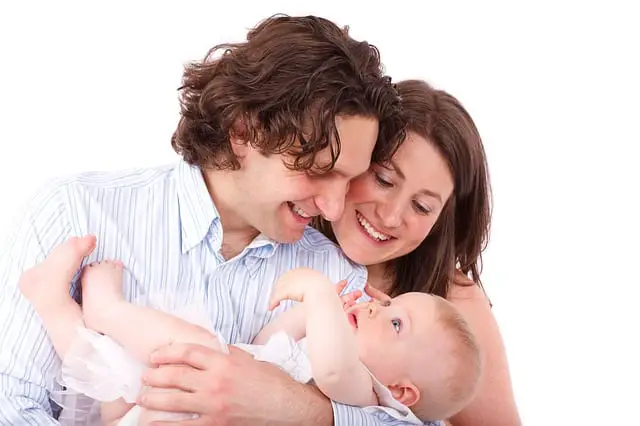
The infant-directed speech sounds like talking and singing together at the same time. This method according to research, helps babies to recognize the sounds of language. It helps to draw baby’s attention to speech. It shows them the differences between words such as Ma and da.
2. Repeat your baby’s words back to them
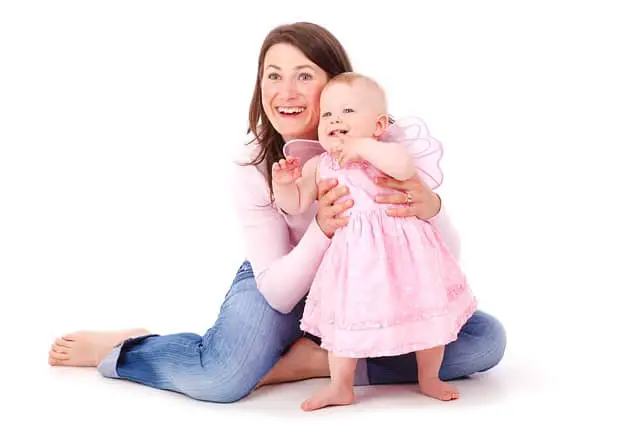
If your baby blabs, imitate them and do the same. A study revealed that babies whose parents imitate their sounds and coos, make more complex sounds, and develop language skills quickly. Also, you can develop a conversation with your baby’s babblings to keep them interested in talking. Hold your baby close as you imitate their words. This will prompt the baby to babble more.
3. Read to your baby
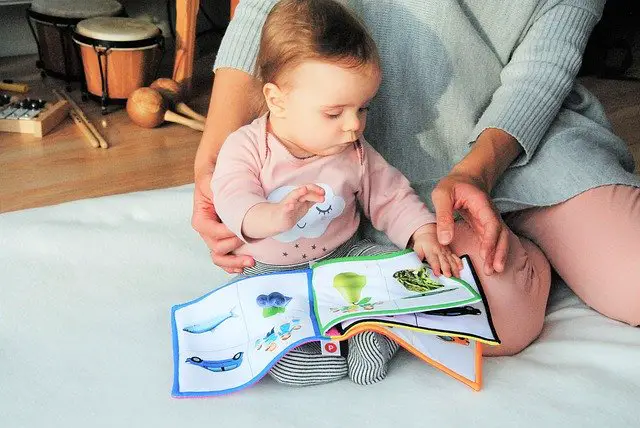
Reading to your baby helps to increase their language development. They may not understand what you are reading, but they hear the rhythm of language and they love hearing your voice. A 2006 study in the Journal of Child Development showed that babies who are read to have greater language comprehension, more expressive vocabularies, and higher cognition scores by age 2 than those who are not. Get Board books for your baby to gnaw on and look at them.
4. Use sign languages

For babies that are up to 6 months, sign language is an effective way to talk with them. You can come up with your own sign language or use American Sign Language. Use it before or during any activity you want the baby to understand. Although sign languages may delay oral communication, it will help the baby to build vocabulary and encourage language development.
5. Talk to your baby
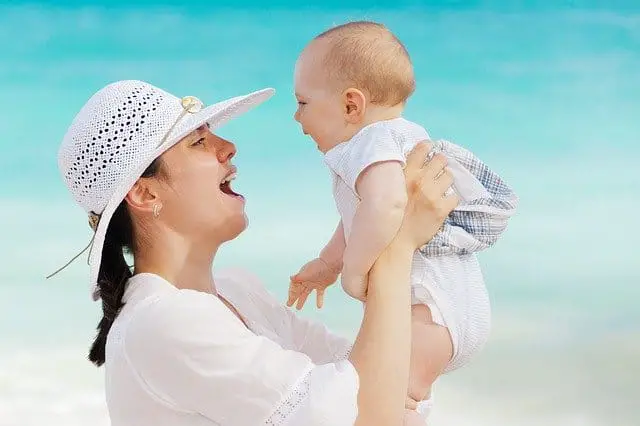
There is no better way to learn how to talk than to do it practically. They may not understand what you are saying, but they can hear and recognize your voice and smile. They will enjoy hearing other people around you too. You can talk to them when you about removing and changing their diapers to let them know what you are doing. Talk to them when you bath and feed them.
6. Switch off your phones, TV or radio

There are times you need to give the baby a quiet time. Let them have time enough to babble and play on their own. Switch off your TV and radio to pay attention to your baby. TV, radio, and apps talk to kids but do not encourage them to respond.
7. Ask them questions
When your baby gets to 12 to 15 months old, ask them questions as you read books to them. Show them pictures in the book and ask them to tell you the name. Ask them questions when you want to dress them. Ask the kind of color they will like to wear for the day. When the baby mentioned something, tell them more about it. For example, if they point to a dog, tell them how the dog looks and backs.
8. Play games and get toys that encourage babies to talk
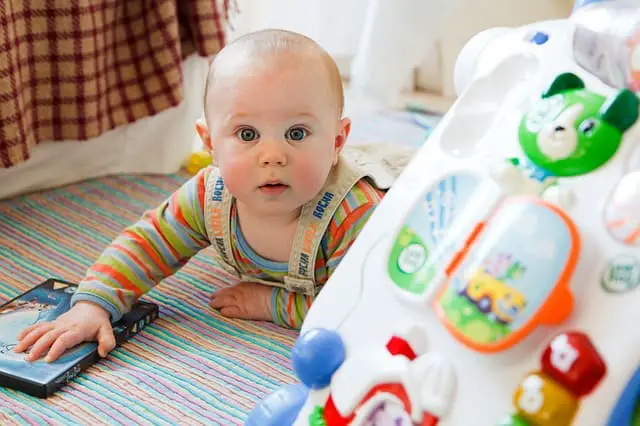
Babies love to play, and this is a great time to help your baby learn how to talk. There are different games you can play to help them develop their speech. You can do the clapping game. Sing clapping songs like Pat a Cake and encourage them to clap as you clap. Other games they can play include the wheels on the bus. You can also get toys that are designed to help babies talk such as the Fisher price laugh and learn smart stages puppy, and Vtech Touch and Teach word book.
9. Sing educational songs
Sing educational songs to your baby such as One, Two, Buck my shoe, and Three Little Piggies and One Potato, Two Potato. They may not be able to sing it the way grownups do, but they will be familiar with the language and the songs.
10. Give positive feedback
Peradventure your baby is not catching up as they should, encourage them. Don’t be angry at them if they fail to repeat words after you. They surely understand your words as well as signs, but it can be difficult to control their voice output well enough.
You have learned how to teach your baby to talk early. Try the suggestions and you will be helping your baby to learn to talk easily. By the time your baby starts talking, it will be difficult for you to stop them. However, you must know that talking early is not necessarily a milestone you need to hit to prove to the world that your baby’s development is fast.
If you discover that your baby is a late talker, see your Pediatrician.
